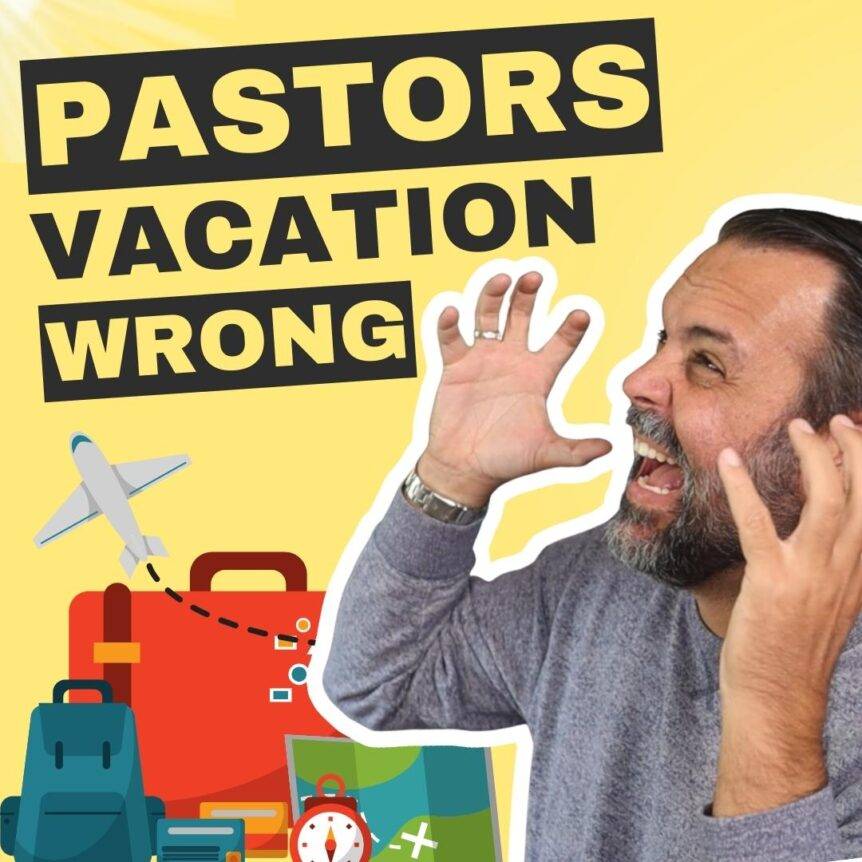In the demanding world of pastoral ministry, taking time off might seem like a luxury. But recent data suggests that many pastors might be shortchanging themselves when it comes to vacations. Thom Rainer’s revealing statistics paint a picture that every church leader should take a moment to reflect upon:
- None to 1 week: 21% of pastors
- 2 weeks: 28% of pastors
- 3 weeks: 14% of pastors
- 4 weeks: 25% of pastors
- 5 or more weeks: 12% of pastors
Source: Thom Rainer
With a staggering 21% of pastors taking only up to a week off annually, it raises the question: Are pastors getting the rest they need to lead effectively? This post dives into the importance of pastoral vacations and offers six tips to ensure spiritual leaders are truly rejuvenating during their time off.
Table of contents
1. Prioritize Duration and Quality
In today’s fast-paced world, it’s easy to mistake a short break for a genuine vacation. However, a quick weekend getaway might not provide the deep rest pastors need. It’s essential to prioritize both the length and quality of the vacation. An uninterrupted two-week break can be more rejuvenating than sporadic days off throughout the year. Remember, it’s not just about quantity but ensuring that the time off is genuinely restful and free from ministry-related interruptions.
2. Plan Around Church Calendar
Timing is everything. While pastors deserve a break just like anyone else, it’s practical to plan vacations around the church’s less busy periods. This might mean avoiding major liturgical seasons or church events. By doing so, pastors can ensure they’re present during crucial moments while also taking advantage of quieter times to rejuvenate.
3. Delegate Responsibilities
No pastor is an island. Before heading off on vacation, it’s crucial to delegate tasks and responsibilities. Whether it’s entrusting an associate pastor with sermon duties or empowering a ministry team to handle day-to-day operations, delegation ensures the church continues to run smoothly. This not only provides peace of mind for the vacationing pastor but also offers leadership opportunities for others.
4. Communicate Clearly
Transparency is key. Pastors should inform their congregation and leadership team about their vacation plans well in advance. This clear communication helps manage expectations and can even reduce potential feelings of guilt or misunderstandings. A well-informed congregation is more likely to support and respect the pastor’s time off.
5. Engage in Spiritual Renewal
Vacations aren’t just for lounging on the beach or exploring new cities. They can also be a time for spiritual renewal. Pastors might consider attending a retreat, spending extended time in prayer, or simply engaging in personal Bible study without the pressure of an upcoming sermon. This spiritual rejuvenation can lead to fresh insights and renewed passion upon return.
6. Refrain from Overworking Before and After
The weeks leading up to and following a vacation can be tempting times to overwork. However, cramming in extra hours defeats the purpose of taking a break. Pastors should strive for a balanced workload before their vacation and allow for a smooth transition upon their return. This ensures the benefits of the break aren’t negated by increased stress and fatigue.
Some Final Thoughts On Pastoral Vacations
In today’s demanding ministry landscape, pastors must prioritize self-care. By embracing these vacation tips, spiritual leaders can find the rejuvenation they need, ensuring they serve their congregations with renewed energy, passion, and clarity. Remember, a well-rested pastor benefits not just themselves, but the entire church community.





